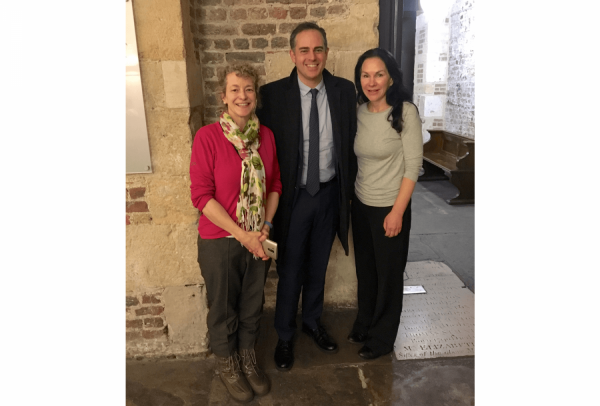Apparently the number of women in work is rising faster in the UK than any other of the world's most advanced economies.
Figures revealed by the Department for Work and Pensions are a positive sign for women in the UK, especially those in flexible employment and those wanting to be.
The highlights include:
• Female employment grew in the UK by 1.79 per cent in the past year
• This marks the sharpest growth out of all the G7 group of leading nations
• The number of women in work is 750,000 higher than four years ago
• More than a third of jobs created for women in the past year were part-time
Employment minister Esther McVey said the rapid rise was partly because working mothers in the UK were increasingly able to find more flexible work.
Women across Britain can be proud of the path they’ve blazed for future generations,’ she said.
‘Women can and should be able to make the choices that are right for them, and our reforms are designed to reflect that and allow women of all ages to pursue their career aspirations whatever their personal circumstances.
'The flexibility of the jobs market in this country means women are able to do just that, and whether it’s self-employment, part time work, or board-level professionals – the opportunities are there.
‘We have also reformed child care, giving more mums the option of moving back into the workplace if that’s what they want.’
The Department for Work and Pensions also said that female self-employment had been rising since the early 2000s and was fairly resilient to the recession.
The number of self-employed women is up by 188,000 compared to last year.
According to ONS data, the number of women working full-time increased by 223,000 to reach 8.13 million between April 2013 and 2014, while the number of women working part-time increased by 132,000 to reach 6.09 million.
However the not so good news, which is that while employment has risen, women’s wages still lag significantly behind men. In fact a recent report from the Chartered Management Institute said a woman would have to work until the age of nearly 80 to earn the same amount of money as a man by the age of 65 for doing the same job.
So, on the one hand flexible employment for women seems to be on the up, but unfortunately wages are still an issue.
We need grasp the opportunities that are out there, but there's still work to be done to make sure we get a fair and equal salary for what we do.





